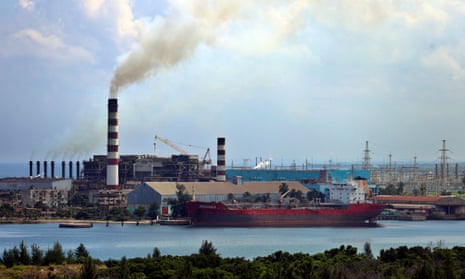Cuban officials have warned that blackouts on the island will increase significantly due to a lack of fuel, potentially worsening the country’s plight as it deals with food and medicine shortages.
Local governments have already begun announcing restrictions on power usage at state-run companies and other entities, including moves to postpone sporting events and university classes.
“We are not going to have the level of fuel we need or what we had in previous months,” the energy and mining minister, Vicente de la O Levy, told a national television broadcast late on Wednesday, alongside the country’s economy minister.
The officials suggested citizens could expect blackouts of up to eight to 10 hours a day outside Havana, where residents are usually spared power outages. They said the outages would begin by October.
The communist-run island has been mired in crisis and plagued by blackouts and shortages of food, medicine and fuel since the pandemic. Gross domestic product is 8% below 2020 levels and goods production 40% below, according to the government.
Cuba says US sanctions are largely to blame for the crisis, depriving the country of foreign exchange to import most of its fuel, food and other supplies. Washington says the Communist party is responsible for Cuba’s ills and that the sanctions aim to restore democracy and respect for human rights.
Cuba has for years depended on oil supplies from Venezuela, but imports had dwindled steadily due to corruption and mismanagement in the South American country,
The officials on Wednesday said Cuba was making daily efforts to secure fuel to keep the country running, without explaining why the situation had gone from bad to worse.
Regarding past fuel shortages, they reiterated an explanation that Cuba’s main suppliers were not able to meet their commitments.
The bleak conditions facing Cubans have sparked numerous demonstrations, including nationwide protests in July 2021 that were the largest since deceased leader Fidel Castro’s 1959 revolution. Hundreds of thousands of people have left the country over the past two years, mostly to the United States.
